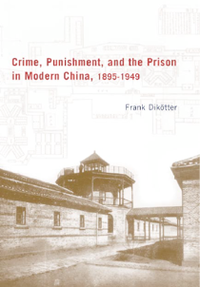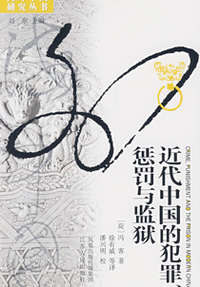Crime, Punishment and the Prison in Modern China (London: Hurst; New York: Columbia University Press, 2002) explores the use of state power to restrict individual liberties in the name of a better future: some 180,000 words in length, it was the first to use multi-archival research in the People’s Republic with sources gathered from a dozen national, provincial and municipal collections, and it examines the enormous changes in modern China through the lens of the prison. The book is a richly textured social and cultural analysis of the prison system that explores the profound effects and lasting repercussions of superimposing modern notions of rehabilitation on traditional categories of crime and punishment. It uses fine-grained documentary evidence to build up a 'history from below', showing not only how prisoners had a voice, but how order in the prison ultimately had little to do with grand plans on paper but rather with the many compromises and accommodations reached by prisoners and guards on the ground. As in the case of eugenics, the messy and complex reality of daily life subverted the ambitious plans proposed by the state, creating new problems where it intended to produce perfection.
Chinese translation published as Jindai Zhongguo de fanzui, chengfa yu jianyu by Jiangsu renmin chubanshe in 2005.
For a sample click here.
For a review click here.

